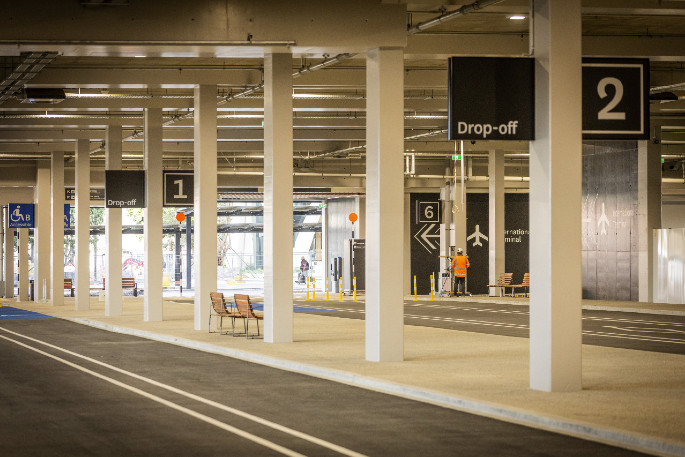This Content Is Only For Subscribers
Travellers are keen to see Auckland Airport progress infrastructure development, with a strong majority saying the construction is necessary.
A new study carried out at the domestic terminal involving more than 600 travellers from across New Zealand asked people about the current experience at Auckland Airport and what improvements they’d like to see take place.
The travellers, who on average had taken two international flights and four domestic flights from Auckland Airport in the previous 12 months, generally had positive experiences at the airport but more than 76 per cent said development was necessary. The number jumped to 81 per cent support for investment to future proof the airport against weather events.
“Not only did travellers back development at Auckland Airport, what they really cared about was smoother journeys – quick indoor walks from domestic to international travel, easy check through of bags from local to international flights, and faster processing and shorter queues,” says chief customer officer Scott Tasker.
“That came through really strongly in the survey results and it’s exactly what we’re very focused on delivering with our new integrated terminal as we bring domestic jet and international travel together under one roof.”
Integrated terminal well underway
The new study results by Kantar comes with more than 600 people now working on the new integrated terminal and construction well underway for the five-year build.
“Construction still has a long way to go, but we’ve now completed the first major step in the terminal integration programme, an enormously complex component of the build involving a three-storey extension of the terminal structure by 95 metres to the east.
“It’s the shell of the major structure that will glue together the existing international terminal to the new domestic jet terminal and includes the new footprint for everything from airline lounges; to the new domestic jet to international indoor connection; and the new baggage system.
“We are currently creating the platform for the piles for the new domestic jet terminal, which are being fabricated for installation shortly, along with continuing significant upgrades to the utilities and airfield that will support the airport for the next 30 years of travel.”
When asked about future improvements, the vast majority of travellers favoured Auckland Airport working to get the basics right, along with making travel more seamless.
Nine in 10 travellers wanted increased capacity to allow for more flights and potentially more airfare competition; 89 per cent wanted more space and modern seating areas; 88 per cent wanted better baggage handling systems; 87 per cent wanted faster processing and shorter queues; and 81 per cent wanted a short, indoor walk between domestic and international.
The Auckland Airport results reflect findings from other recent international traveller surveys showing travellers high expectations for the airport basics, including 83 per cent of travellers wanting better seating and 79 per cent wanting to see less queueing.
“Like us, airports the world over are getting underway with major upgrades of core assets, much of which was built in the 60s and 70s.
“Our current domestic terminal no longer has the capacity to manage more flights at peak times. For travellers that means tickets are harder to come by – and more expensive – when flying at popular times.
“We are addressing that with the new domestic jet terminal, which has 26 per cent additional capacity created by aircraft gates that can manage both widebody and narrowbody jet aircraft, with a further 10 per cent seat capacity available with dedicated domestic bus lounges. That flexibility allows for more flights, or airlines, through the daily peaks and the ability to add larger aircraft to accommodate the mass movement of people, whether that’s during holiday periods or when there’s a popular event such as a concert or sporting fixture.”
Keeping travel affordable
At just over $10 per passenger, Auckland Airport’s domestic jet charges are currently between 45 per cent and 69 per cent of what other major New Zealand airports already charge today.
Scott says keeping travel affordable is a key goal of the infrastructure programme, with a viable pathway to an average of $25 per domestic jet passenger during the future five-year pricing period (2028-2032), with prices still subject to consultation.
“New infrastructure comes at a cost, which we are very conscious needs to deliver value and real benefit to travellers, particularly at a time when the public are really feeling the pinch associated with the rising cost of basics. Based on our survey, we are delivering to the things customers care about, along with what’s required for a resilient gateway airport.”
The $3.9 billion terminal integration programme is expected to be complete 2028/2029 and is key to enabling critical upgrades to the runway to take place by 2030.
“Construction of the integrated terminal is well underway, with 35 per cent of the build now in delivery, 20 per cent of the works now completed.
“Major airlines have backed terminal integration since 2014, telling us to keep going with our plan and supporting the project until recently.
“We advanced this project for many years with their backing – critical infrastructure for our economy and the safety and ongoing resilience of the airport.”



